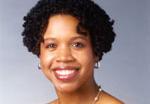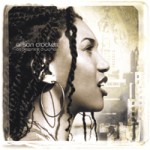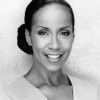Trumpeter Nicholas Payton has fostered a healthy, ongoing dialogue on the subject of the creative music widely known as jazz, the implications of that “J” word (negative as he sees it; preferring Black American Music, or the acronym BAM he has subsequently coined and begun running with), and various aspects and implications. Part of his contention seemed to suggest that somehow some element of theft has occurred relative to the African American origins of this music. I wrote a subsequent piece in The Independent Ear, once again suggesting that there’s really been no theft, that through attrition, lack of interest, and inattention to the legacy, black folks have simply given the music away. Nicholas was quick to disabuse me of the notion that his theory involved thievery, but the ensuing dialogue – including blog, Facebook, and Twitter posts – got me to thinking that perhaps one way to foster a broader dialogue on the puzzling subject of the black audience for the music – BAM, African American Classical Music, jazz or however you call this creative musical force – might be to pose a question to certain black folks who have deep investment in the music and get their take.
I started out by posing this simple question to a select few friends and colleagues in the music; however this question is not limited to that select group and if you wish to be part of the dialogue The Independent Ear would be happy to hear from you and subsequently publish your response in this space as part of a series of such dialogues. So here you go…
Where’s the African American audience for creative music, where did it go, can we recapture that audience, and how can we go about doing so. Is the term “jazz” a hindrance, or is that argument pure nomenclature?
The first two responses come from two extremely talented and brilliant women, both of whom have in-depth histories with the music and care deeply about its future. I’ve also included a thoughtful letter from one of my old BET Jazz colleagues who weighed in on the dialogue that firestarter Nic Payton laid out there for our consideration.
NATALIE BULLOCK BROWN, Producer/Consultant; filmmaker, college/university educator, and one of the producers of the Ken Burns’ PBS series “Jazz”.

I have really been pondering your question and honestly, feel like I should do research and conduct polls! I mean this is the stuff of thesis papers, really. It’s a very deep question. Following is my humble attempt at an answer.
I don’t really know where the African American audience for creative music, aka “jazz,” has gone. But I suspect that integration had something to do with the dispersement. I think that when the African American community was united under Jim Crow, we supported our PEOPLE – whether they were doctors, lawyers, teachers, singers or even jazz musicians. But with integration came many opportunities to be distracted by all the new choices we were afforded, and unified support of the “community” became less and less a priority. Now, we have so many issues as a people, not the least of which is that many of us tend to ascribe the term “white” to anything we don’t do (like speak the King’s English) or don’t understand (like jazz). And it really doesn’t matter what we might call jazz, the thinking will be the same.
Many of us think to be smart is acting white, to eat well and take care of our bodies is acting white, and to play or sing anything other than hip hop, R&B or gospel is – you guessed it – playing the white role; [a] deep pathology in our community now. Deep. And unfortunately, as a result, we’ve walked away from a music – whatever you want to call it – that WE created. Now, our position vis a vis jazz, or BAM, is like that of an absent father who has been away from his offspring for many years. The music has evolved and mutated and grown – it has become so many things to so many people, and spread in ways that could never have been anticipated during the music’s infancy. There’s so much that our community has missed as jazz has grown up. So in many ways, it is hard for us to appreciate what it currently IS because we missed the years of maturation and experimentation – the “teenage years,” if you will.
Now that jazz is all grown up, (even though very much a work in progress, still), it seems to me that African Americans have to want to get to know jazz in order to re-establish the relationship. And that’s on us – not the music. Because the sweet thing about jazz is that it is so completely welcoming, holds no grudges, and forgives absence in a moment, that it will take us back the minute we step back into the clubs, or the concert halls, or the festivals. We have to want it, though. We have to recognize the need, all that we’ve missed, and how enriched and enlightened our lives can be when we return to the music we left.
In other words, we as a people have to grow up. We have to mature and desire clarity, knowledge, wisdom. We have to love ourselves in order to love what has come from us. Only God knows how to accomplish this. In the meantime, I hope that our music will continue to be what it always has been – inviting, funny, transcendent, peaceful, transformational, suggestive, sexy, brilliant, heady, clever, beautiful and all of the other amazing things jazz is. Because eventually, prayerfully, we WILL evolve and grow and return to ourselves. Only then will a true reunion take place.
ALISON CROCKETT, vocalist/educator

Where is the audience for black music? Listening to Drake, Rhianna, and Beyonce. They’re black. That’s where they’re going. This music is part of their lives on a daily basis. It’s on their iPods. They listen to it on YouTube. It’s on the Disney Channel. It’s in Church and school. It’s the music playing at the ice skating rink and the music they dance to in their dance classes.
Music outside of that is “special.” Music that you are told about in school for an assembly; your parents take you out to see to enlarge your cultural perspectives. Or, what your parents may or may not listen to in the car or in the house.
Music is always about function. We use our culture for purpose. In the past, dance music was big band music. But Charlie Parker and Dizzy Gillespie turned it into “art” music; fast and difficult to dance to and use in daily life. Coltrane moved the music into a “spiritual” path and Monk made unique shapes and sounds with it. These different ways of looking at music did not always lend themselves to easy, singable melodies all the time that you could dance to and use in your daily life. Solos became longer and it possibly became more difficult for the unknowledgeable listener to follow the basic structure of the tune. There was Motown and later Gamble and Huff for that. [Editor’s note: Kenny Gamble once told me in an interview that in his orchestrations for the legion of Gamble & Huff hits he always strove to emulate the swinging atmosphere of the Basie band; listen to some of their classic R&B hits – the O’Jays “Love Train for example – the orchestration always swung.] These are not value judgments; I love all these musical expressions. But truth is truth. Its hella hard to dance to “Donna Lee” or sing along with “Brilliant Corners.” Also, the music was listened to in small clubs while you smoked or drank. As people did less of both, and it became more and more expensive to do either in a public situation, I’m assuming there is less going out. Also, you can smoke and drink at home with your state-of-the-art system for watching and listening in your hooked-up living room.
The black community still has yet to embrace en masse any art form of music not embraced by the larger “majority” community. Money is an issue. Economic class is another. We do not value our culture monetarily as a group. I include myself in this assessment. As a mother of 2 young children, I don’t always have the resources between mortgage, groceries, children’s activities, and daycare. There’s only so much left to go around for entertainment and when I do, it’s centered on children, or something that I really want to see. There’s also a long and continuous history of going out and listening to music while drinking in the white community around the country. This is not mirrored in the black community to the same extent. The black community also doesn’t really want to talk about or hear, as a group, themes outside of love, sex, relationships, etc. They do not want to be spoken to about activism, deep thoughts or emotions, complex ideas, etc. Not to put us down, but as a grooup, we would prefer to watch Maury or Oprah when it comes to entertainment.
What do you do about it? I really don’t know. It’s a holdover from the slave mentality I believe. The ship may have already sailed. That may sound like a cop-out, but… there it is. One thing that really needs to be thought of is money and structure. Quincy Jones created Vibe magazine to support hip hop. It helped to legitimize the music. In this day and age, there needs to be a legitimizer in the black community for jazz and jazz-inspired music. There needs to be an embracing of the styles within jazz and a knowledge of what they are: neo-soul, drum ‘n bass, soulful house music, etc. These more electronic modes of music use jazz as their base and should be embraced by the wider American jazz listener and musician. We have to allow the music to evolve also. Whenever I performed with Orrin Evans, there was always a sense of fun in the show. In DC, Allyn Johnson has the same feeling. We musicians need to respond to the public and the public needs to respond to us. We can present the music that we love in a way that people of all ages can respond.
It’s a long educational slog on both sides that can be an invigorating experience for all. Many of the people that I know are interested in hearing good music, but don’t have the time to dig for it or go see it. Creating interfaces for busy people with disposable income is a must. Make the music a part of people’s lives in an organic way, just like people do with country music. My family went to a pig pull of a well known sweet potato farmer in South Carolina and there was not an ounce of music presented; FYI, it is when a local farmer gives a LARGE dinner for all the important people in the area, thanking them for their support. Food was delicious, and there should be music that is a part of it. Though this may be a little bit of a stretch, we have to think outside of the box in order to compete with the multi-leveled, media-saturated environment that we are in today.
And this related note in response to some black folks’ ongoing email dialogue on Nicholas Payton’s think-pieces; from vocalist and former BET Jazz host ANGELA STRIBLING:

Happy New Year All!
Thanks for including me in this post. I often ponder the same thing about the plight of Jazz today and tend to agree with Willard! No one is putting up a fight for it. So, we’re essentially giving it away!
My question is, how can we as jazz musicians and enthusiasts attract more African Americans out to hear this beautiful music?
Like many of you, I perform Straight Ahead Jazz all over the world and get so much support for this art form. However, when it comes to gigs here in the States, I rarely see “us” in the audience…
We know it’s a growing problem… For years we’ve watched this transformation… Now, what can we do to get our people into jazz again?
Without any of us being judgmental or too critical of what we come up with… can we just kick around some ideas? I’d love to hear what you think:)
In the meantime, keep swinging’ and have a Blessed and Prosperous 2012!

7 Responses to The black audience question